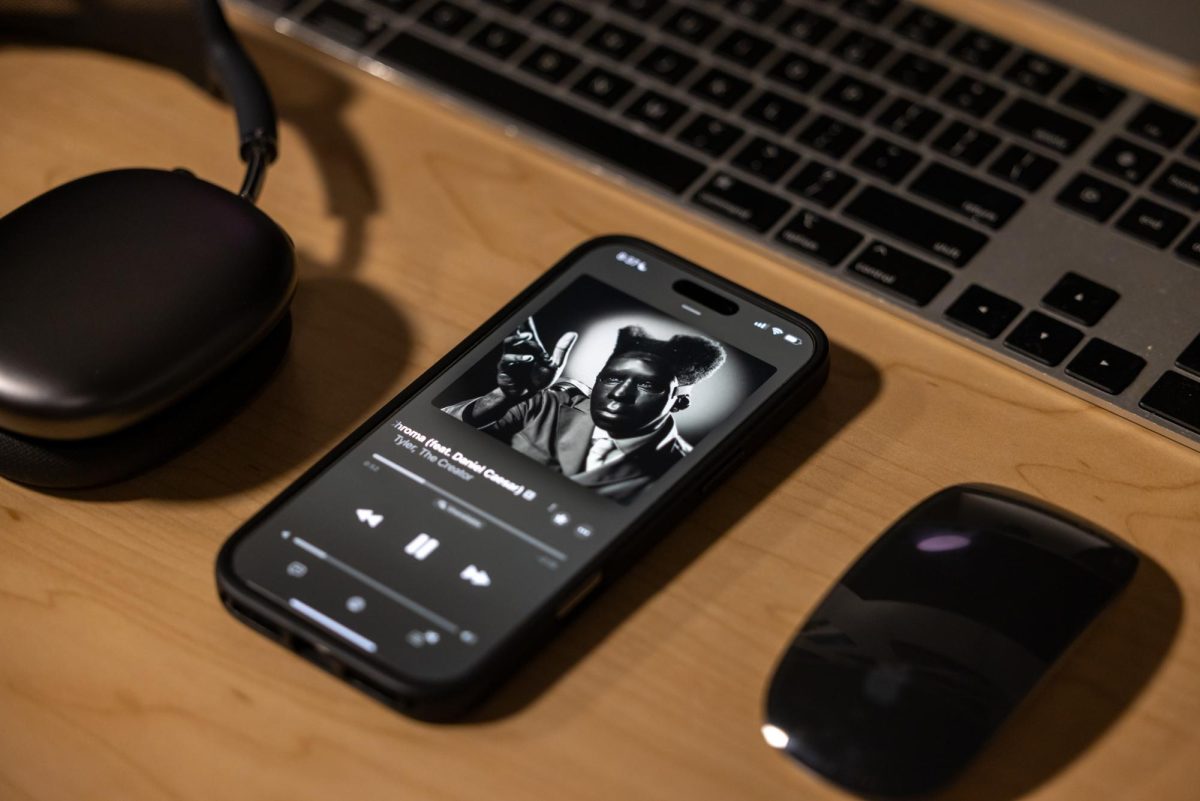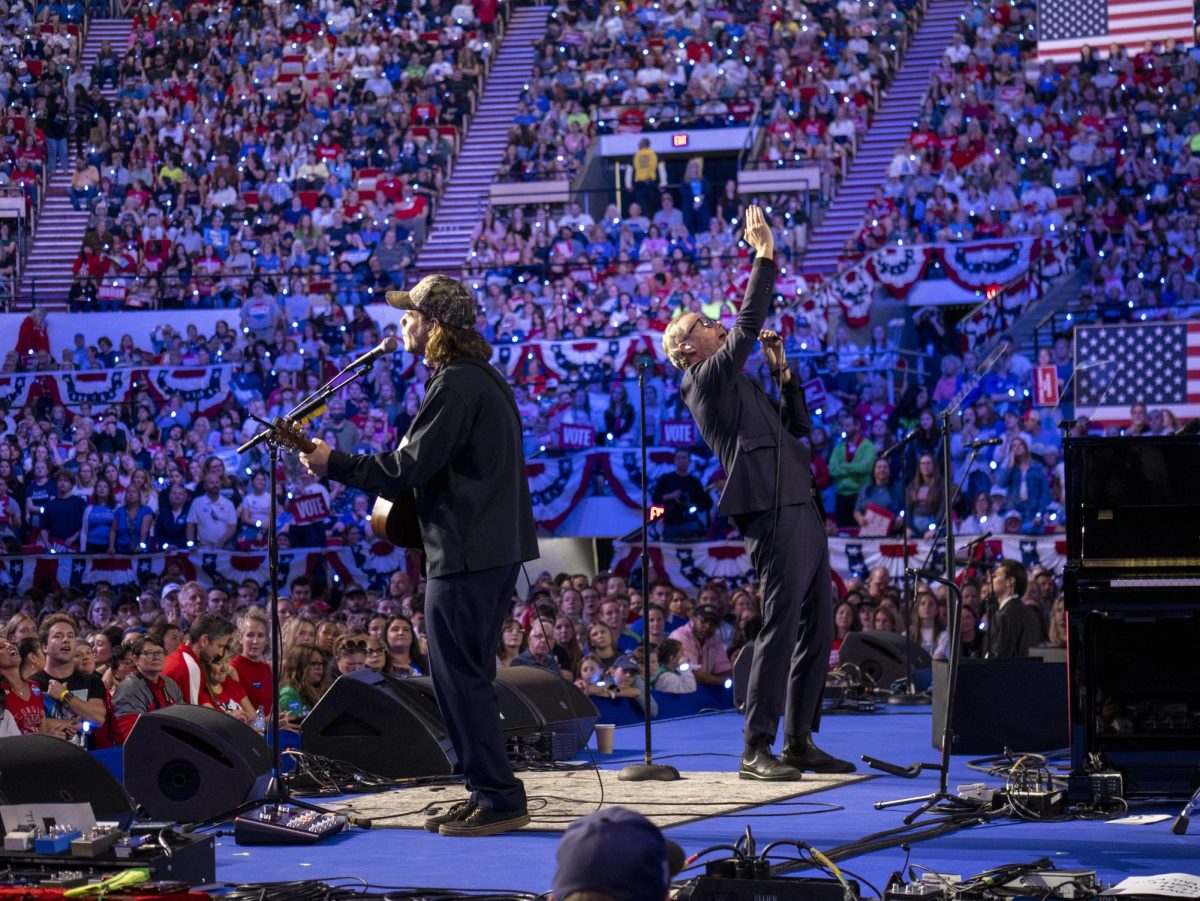The Drive-By Truckers are not exactly easy listening. This was incredibly clear at the Barrymore Theater Friday night. This is not to say that their opener, Blitzen Trapper, is, but Blitzen Trapper centered their act around audience interaction more so than music. They talked to the crowd and encouraged cheers with several awkward but well-intentioned one-liners including something along the lines of “psychedelic raging.” The Drive-By Truckers on the other hand did not particularly seem to care if the audience was there or not.
The Truckers opened with “Carl Perkins Cadillac.” This made a big statement, as it wasn’t a big, standard opener of a song. In playing a song that focused on lyrics rather than “getting the people going,” they made it clear that they were not there to entertain or to make people dance, but to sing their way through Southern roots and the increasingly lost art of guitar licks and lyrical storytelling. The Drive-By Truckers don’t care about the audience because they aren’t playing for the audience. They’re playing to ease the pain and tell the story of having something broken and lost inside. Nothing can illustrate this as well as when singer Patterson Hood crooned, “She can’t stand to have him around / but she always misses him when he’s gone” during “When He’s Gone.” The band sings for the broken, confused and completely human.
The broken parts have bled into the band itself. Jason Isbell was kicked out of the band for alcoholism, a sickness that crops up in different forms in the band’s work. The pianist/guitarist Jay Gonzalez at the show had something off about him; by the end of the concert his head and eyelids were dropped low and he could neither play his guitar nor tune it. It isn’t good or healthy, but it is a testament to how deeply the band feels the music. It shows, too; however low his head may have drooped in those last 20 minutes, Gonzalez banged out attention-grabbing and impressive piano licks throughout the rest of the evening.
I went to this concert with two new “concert buddies.” In the past I have been lucky enough to have concert-going friends with similar music tastes, from my brother and father to a friend who came along as result of shared “hipster” music tastes. In the absence of these regulars, these two friends came along without knowing what they signed up for.
They weren’t the only ones who were lost. It’s hard enough to respond to a concert that does not play to the audience, but the Truckers were also not playing to their surroundings. They played blue-collar music in a white-collar setting, and the two didn’t know how to fit together. The contrast of the lyrics “Last night I slept with my boots on again / One cut on my forehead and one on my chin / On the hard, old floor with nothin’ to cover up with” and the scattered attempts at dancing would not and could not gel. These words, from the song “Love Like This,” were not words anyone could relate to, and it’s inherently difficult to understand and respond to what we do not know … which no doubt explains the dancing.
The Drive-By Truckers played a strong, heartbreaking concert, not for money or fame but to work out the harder things in life. They sang about cocaine and beer and love stories that don’t end like fairytales. The audience wanted to understand the energy and heartbreak that the member of the band gave off. The Truckers did not encourage or discourage them, but played their music because they needed to.
The Drive-By Truckers will never be “baby-making” music (except to one very determined couple near the front), but they produce just as much feeling, if not more. The Truckers are made up of richly-layered guitars, emotionally-charged lyrics and exceptional musicians. They are reclaimed wilderness, nostalgia and the power behind a guitar.













